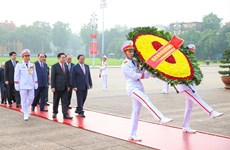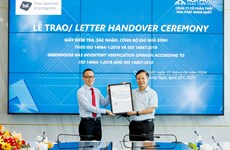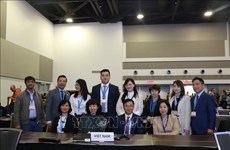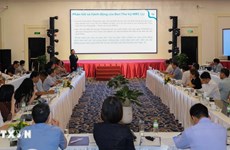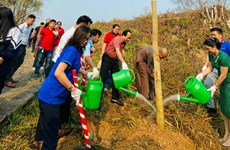HCM City strives to end production, import of single-use plastics
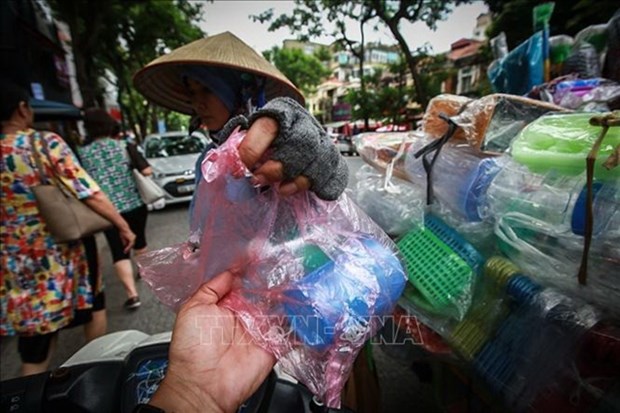 HCM City wants to stop the production and import of single-use plastic products, non-biodegradable plastic bags and microplastic items to lower plastic waste pollution and treatment cost by 2030.(Photo: VNA)
HCM City wants to stop the production and import of single-use plastic products, non-biodegradable plastic bags and microplastic items to lower plastic waste pollution and treatment cost by 2030.(Photo: VNA)HCM
City (VNS/VNA) – Ho Chi Minh City is striving to stop the
production and import of single-use plastic products, non-biodegradable plastic
bags and microplastic items to lower plastic waste pollution and treatment
costs.
The municipal’s People’s Committee has issued a plan on
strengthening the management, reduction, reuse, recycling and treatment of
plastic waste in the city in the period of 2022-2025, with a vision to 2030.
Accordingly, the city will eliminate the use of
non-biodegradable plastic bags and single-use plastic products,
excluding products intended for export or packaging of other goods,
and products certified with eco-labels.
It
targets to reduce 75 percent of plastic waste on the Can Gio beach, and end the
disposal of fishing gear directly into the sea.
It will implement preferential policies
to support the production of environmentally friendly products, and
encourage the reuse and recycling of plastic waste.
A road map will soon be developed for increasing the
environmental protection tax on non-biodegradable plastic bags and
supplementing the environmental protection tax on single-use plastic products.
The city will also soon issue rules for agencies, offices and
establishments to minimise the use of single-use plastic products and
non-biodegradable plastic bags and packaging in events and activities.
It
continues to target using 100 percent environmentally friendly
plastic bags and packaging at shopping centres, supermarkets, traditional
markets, hotels, tourist accommodation establishments and tourist attractions.
About 9,000 - 9,500 tonnes of domestic solid
waste is discharged into the environment daily in the city, according to the
city’s Department of Natural Resources and Environment.
Of that, 20-25 percent are recyclable
items such as plastic packaging, paper, and metal.
Suffering great pressure from an increasing
amount of plastic waste, the city has implemented many drastic solutions in the
management, reduction, reuse, recycling and treatment of plastic waste.
State agencies and State-owned companies are
required to take the lead in the reduction and recycling of plastic waste and
ban single-use plastic items such as bottles, straws and containers.
In fact, the city’s environmental management
still faces challenges in sorting, recycling and treating plastic waste.
Nguyen Thi Thanh My,
deputy head of city’s Department of Natural Resources and Environment, said the
city is focusing on solutions to reduce the use of single-use plastic
products by promoting production and consumption of products made from
natural and environment-friendly materials.
It is also taking
steps to adopt advanced waste-treatment technologies. It will invest in solid
waste treatment with advanced technologies that save energy and protect the
environment, and seek recycling technology that makes recycled products suited
to the consumption habits of each locality.
Local waste-treatment
facilities have been encouraged to switch to waste-to-energy technologies./.






